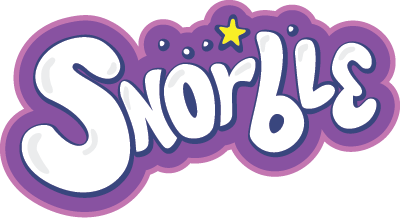“Why won’t my little one fall asleep?,” you ask yourself, exasperated from going back and forth to their bedroom repeatedly throughout the night. There are many over-the-counter sleep remedies available and the one that seems to generate the biggest buzz is melatonin.
Is melatonin safe for kids? Before we get there, what exactly is melatonin and what does it do? And are there sleep aids for kiddos that don’t require them to ingest a pill or liquid? Here’s a hint: yes, and one of those alternatives is our smart companion, Snorble® - more on that later.
What is melatonin?
There are two types of melatonin:
- The natural hormone our bodies make
- The lab-created version you buy in stores
The hormone: What is the natural version of melatonin?
Melatonin is a hormone naturally produced in our bodies that correlates to the time of day. When it’s dark, our brain tells the body to release melatonin to signal that it’s time to think about going to bed. In the morning and throughout the day (when it’s light out), our brain decreases melatonin production which is why we don’t get sleepy during the day - unless we’re overtired.
As we get older, melatonin production declines, making it harder for us to fall asleep. Although this doesn’t happen to everyone and with a good bedtime routine in place, we can still convince our brains that bedtime equals sleep time. The same goes for children. With a bedtime routine, your kiddo will be set up with great sleeping habits that they can carry with them throughout their life.
The lab-created supplement: Is melatonin a drug?
The melatonin you can purchase is made in a lab and available as a tablet, capsule, or syrup. In Europe, Japan, and Australia, melatonin is only available with a prescription. In North America, it is available over the counter and anyone can purchase it at their local pharmacy and big box drugstores. The FDA considers melatonin to be a dietary supplement because it occurs naturally in some foods like tart cherry juice and walnuts. (These does not mean that consuming tart cherry juice or walnuts will make your little one fall asleep faster.)
How does melatonin work?
Melatonin is produced by the pineal gland in our brains. This hormone is both a chronobiotic agent (aka helps our brains tell what time of day it is) and a hypnotic. This means that the chronobiotic properties regulate our body’s internal clock and the hypnotic properties are what help us fall asleep because the chronobiotic effect occurs in all of us without prompting. Around 1-3 hours before the onset of sleep, our brain goes into dim light melatonin onset (DLMO) telling our bodies that it’s time to start getting into relaxation mode.
When we take melatonin supplements, we are using them for their hypnotic effects. Since we are taking a higher dose than what’s naturally occurring in our bodies, the supplements are signaling to our brains that it’s time to sleep within 30 minutes to an hour of ingestion.
What are the side effects of melatonin?
When taken orally and in appropriate dosage, melatonin is generally safe. However, there are some side effects:
- Headache
- Nausea
- Drowsiness
- Dizziness
Taking melatonin supplements nightly could delay the onset of puberty and hinder hormonal development. Because the body produces melatonin on its own, when adding more melatonin regularly to induce sleep, our brains may be confused and overproduce other hormones to create a balance.
Can you give melatonin to a child?
Yes, melatonin is safe for children but, before giving your child melatonin, please consult your pediatrician. We cannot stress the importance enough of talking to a medical professional before administering melatonin to your kiddo.
What about children with sleep disorders? Can they use melatonin?
Sleep problems in children, especially toddlers, can affect their behavior and cognitive functioning. If these problems aren’t addressed early they can affect your child’s future quality of life. Sleep disorders in children can be caused by other underlying issues such as asthma, atopic dermatitis, attention-deficit hyperactivity disorder (ADHD), autism spectrum disorder (ASD), and nyctophobia-induced anxiety (fear of the dark). Melatonin may allow kiddos with sleep disorders to catch some much-needed zzzs but please, consult a doctor before giving your little one any.
Snorble’s ready for bed
Instead of reaching for that jar of melatonin to help your little one sleep, reach for Snorble! Our smart companion for children is designed to give your kiddo the emotional, learning, and cognitive tools necessary to fall asleep and stay asleep. The Magical Bedtime Experience™ is complete with pajama time, tooth brushing prompts, storytime, and other important aspects of bedtime to give your child a one-way ticket to dreamland. Besides giving your kiddo everything they need to get to bed, Snorble’s interactive daytime games are education-based to prepare your child for school, teach healthy habits, and encourage social-emotional growth. There are also winddown activities for relaxation like yoga and reflection, and jokes for when your little one needs a good laugh.
Sources:
- Mayo Clinic melatonin overview
- Craig Canapari, MD
- NIH circadian rhythm overview
- NIH melatonin overview
- McGill University: How melatonin can be sold without a prescription
Photo by zhenzhong liu on Unsplash


